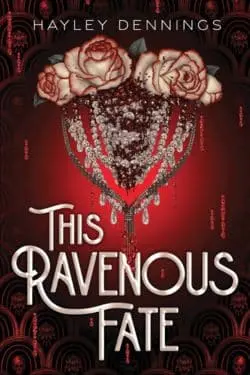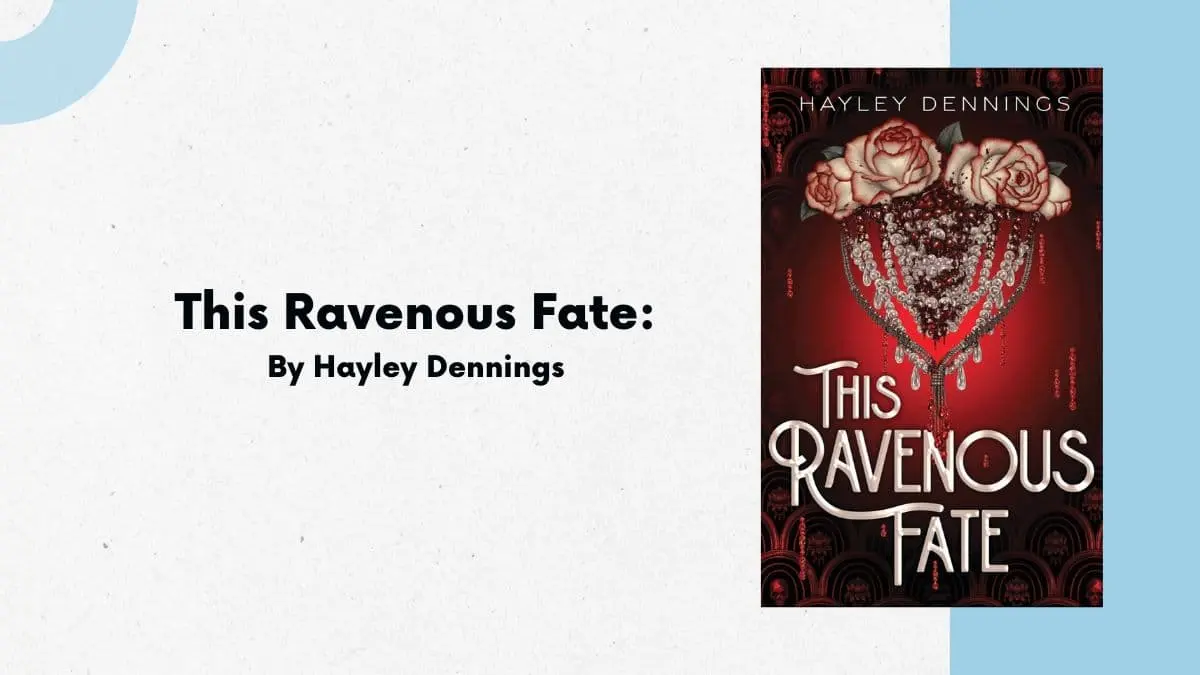Set against the backdrop of Jazz Age Harlem in 1926, This Ravenous Fate by Hayley Dennings introduces readers to a world where the dark and the supernatural blend seamlessly with historical fiction. The novel, the first in a planned duology, explores a unique premise where reapers—once-human vampires—are rising in power, threatening the balance of the world. Central to this story are two Black female protagonists, Elise Saint and Layla Quinn, whose destinies are entwined in ways neither can fully comprehend.
Plot and Themes: A Complex Web of Love and Revenge
The novel is as much about personal struggles and relationships as it is about the supernatural. Elise, returning to Harlem after years of studying music in Paris, is thrust back into a world she thought she had left behind. Her father’s reaper-hunting business looms over her, as does her complicated past with Layla, a former friend turned reaper. As tensions rise between humans and reapers, Elise and Layla find themselves on opposing sides of a deadly conflict, but are forced to work together to uncover the Mystery behind a series of murders targeting the Saint family. Their relationship is fraught with unresolved emotions—anger, betrayal, and a love that defies the boundaries of their respective worlds.
The novel delves deep into themes of loyalty, betrayal, and the blurred lines between love and hate. Dennings effectively uses the Harlem Renaissance as a backdrop, infusing the narrative with the cultural richness of the time, including the importance of music, particularly jazz and R&B, which serves as both a literal and metaphorical soundtrack to the characters’ lives.

Character Development: Strong Leads, Weak Support
Elise and Layla are complex, well-developed characters, each grappling with their own demons and the societal pressures of their time. Elise’s struggle with her inherited responsibilities and her lingering feelings for Layla make her a compelling lead, while Layla’s transformation into a reaper and her quest for vengeance add layers of complexity to her character.
However, the novel falters when it comes to its supporting cast. Many secondary characters fall into clichés, lacking the depth and nuance that make Elise and Layla so engaging. This uneven character development detracts from the story, as the supporting characters often feel more like plot devices than fully realized individuals.
Pacing and Structure: A Tale of Two Halves
The pacing of This Ravenous Fate is one of its more contentious aspects. The novel starts slowly, with a heavy focus on world-building and character backstory, which some readers might find tedious. The middle sections of the book can drag, as the plot seems to meander without clear direction. However, the final act of the novel picks up significantly, with rapid-fire developments and a climax that ties together many of the story’s threads. This sudden shift in pacing can be jarring, making the novel feel somewhat disjointed.
Atmosphere and Setting: A Vibrant, Yet Underutilized Harlem
Dennings excels in creating an atmospheric setting, capturing the essence of 1920s Harlem with its vibrant nightlife, underground clubs, and cultural renaissance. The historical setting is rich with potential, but some readers have noted that it is not fully exploited. While the novel touches on important social issues like racism and the struggles of the African American community during this era, these themes are often overshadowed by the supernatural elements of the plot. The world-building, while intriguing, leaves much to be desired, with some readers wishing for a more immersive and detailed exploration of the novel’s setting and its supernatural aspects.
Final Thoughts: A Promising, If Flawed, Debut
This Ravenous Fate is an ambitious debut that offers a unique blend of historical fiction and fantasy. Its strengths lie in its main characters and the emotional depth of their relationships, as well as the vibrant, though underutilized, setting of Jazz Age Harlem. However, the novel’s uneven pacing, lackluster supporting cast, and occasionally confusing narrative structure prevent it from reaching its full potential.



